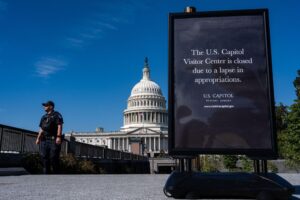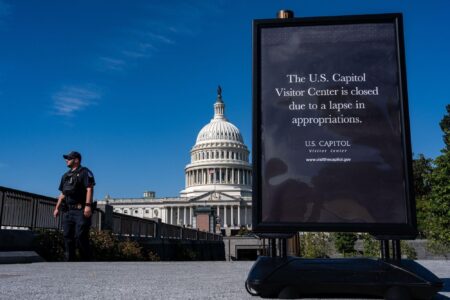Washington State Opposes Federal Education Funding Conditions Imposed by the U.S. Department of Education
Washington State has officially joined a coalition of states contesting the U.S. Department of Education’s (ED) recent imposition of conditions tied to federal education funding. The state contends that these mandates infringe upon state sovereignty and disrupt locally determined educational priorities. At the core of this dispute is a multistate lawsuit arguing that the ED exceeded its legal authority by attaching stringent compliance requirements to federal grants, which Washington and its allies believe could undermine equitable resource allocation across their school districts.
Washington officials have identified several primary concerns, including:
- Curriculum mandates that conflict with state-established education standards
- Extensive reporting requirements that impose financial and administrative burdens on local school districts
- Restrictions on fund usage that limit the ability to address unique community needs
The lawsuit aims to secure a judicial determination that clarifies the boundaries of federal authority in education funding, safeguarding states’ rights to manage their school systems with minimal federal interference. Legal analysts suggest this case could set a significant precedent regarding the balance of power between federal and state governments in education policy.
| State | Primary Issue | Current Status |
|---|---|---|
| Washington | Federal overreach in curriculum requirements | Active litigation |
| Texas | Limitations on fund flexibility | Joined lawsuit |
| Florida | Excessive federal reporting demands | Awaiting court decision |
Legal Consequences and Potential Shifts in Education Policy
This multistate lawsuit underscores a pivotal legal confrontation over the extent of federal authority in attaching conditions to education funding. The central legal question is whether the U.S. Department of Education has exceeded its regulatory powers by enforcing mandates that states like Washington argue compromise their autonomy and educational priorities. Experts in education law suggest that a ruling favoring the states could impose stricter limits on federal influence, potentially reshaping how future education policies are linked to federal financial support.
The implications of this case extend beyond immediate funding concerns, potentially catalyzing a nationwide reevaluation of federal-state dynamics in education. If the courts rule in favor of the states, possible outcomes include:
- Reassessment of federal compliance mandates for states receiving education funds
- Enhanced state authority in crafting and implementing education programs
- Revision of existing federal grant conditions, including those related to curriculum standards and equity initiatives
| Aspect | Potential Impact |
|---|---|
| Federal Funding Conditions | Restrictions on attaching mandates to funding |
| State Educational Autonomy | Broadened control over education policies |
| Enforcement of Compliance | Possible reduction in federal oversight mechanisms |
Examining Washington and Allied States’ Arguments Against Federal Overreach
Leading the coalition, Washington State challenges the U.S. Department of Education’s recent enforcement of stringent conditions tied to federal funding. Their core argument is that these requirements surpass the federal government’s constitutional authority, effectively coercing states into compliance rather than respecting their sovereign decision-making rights. The coalition asserts that this approach disrupts the balance of power established by the Tenth Amendment, undermining state autonomy in education governance.
Highlighted concerns from Washington and partner states include:
- Unlawful expansion of federal power: The Department is accused of using funding as leverage to enforce policies beyond its legislative mandate.
- Inhibition of state innovation: Federal conditions attached to funding restrict states from developing customized educational strategies tailored to their unique populations.
- Legal precedent risks: Citing Supreme Court decisions that caution against conditional spending overreach, reinforcing states’ rights.
- Administrative complexity: The coalition points to the excessive bureaucratic and financial burdens imposed by complicated federal compliance requirements.
| Argument | Consequence | Legal Basis |
|---|---|---|
| Coercive Funding Conditions | Diminished State Control | Tenth Amendment |
| Ambiguous Mandates | Increased Compliance Challenges | Administrative Procedure Act |
| Ignoring Legal Precedents | Potential Supreme Court Review | NFIB v. Sebelius (2012) |
Strategies for States to Manage Federal Education Funding Requirements
To effectively navigate the complexities of federal education funding compliance, state governments should prioritize establishing transparent and ongoing communication with federal education agencies. Regular dialogue and scheduled consultations can help states stay informed about evolving mandates, reducing the risk of inadvertent noncompliance. Additionally, investing in specialized training for staff responsible for managing federal grants can enhance the capacity to interpret and implement complex policies.
Developing a comprehensive internal audit system is also crucial. Utilizing detailed checklists and real-time compliance dashboards enables education departments to monitor fund usage closely and identify potential issues early. Below is an example of a compliance checklist that state education offices might customize for their oversight processes:
| Compliance Category | Required Action | Current Status |
|---|---|---|
| Documentation | Ensure all expenditure receipts are up to date | In Progress |
| Reporting | Submit quarterly financial reports by deadlines | Completed |
| Policy Alignment | Review compliance with Title IX and related regulations | Pending |
Conclusion: Key Insights on the Federal Education Funding Dispute
As Washington State advances its legal challenge alongside other states, the resolution of this multistate lawsuit against the U.S. Department of Education could profoundly influence the future framework of federal education funding and state governance. Policymakers, educators, and stakeholders nationwide are closely watching this case, which underscores the ongoing tension between federal oversight and state control in shaping education policy. Dailyfly News remains committed to providing timely updates on this evolving story.







